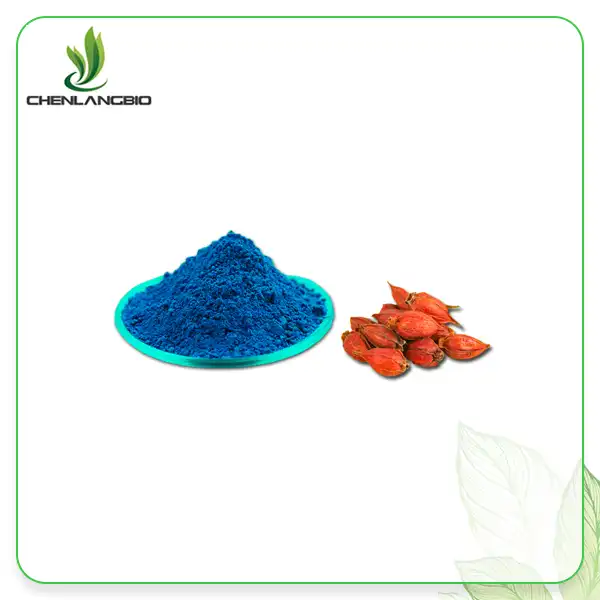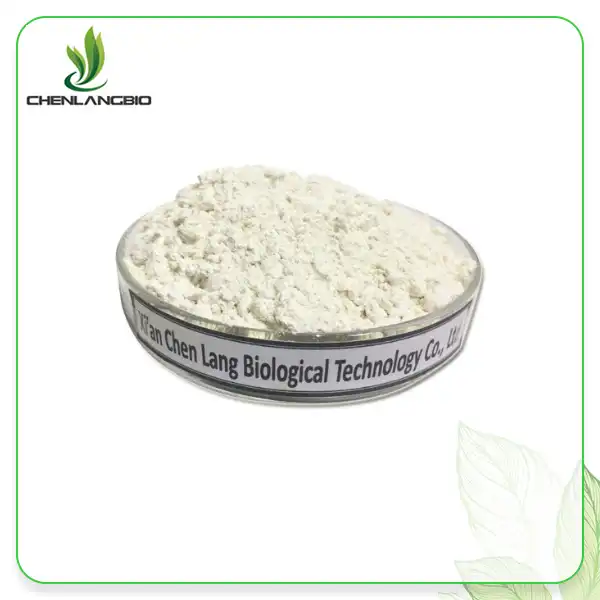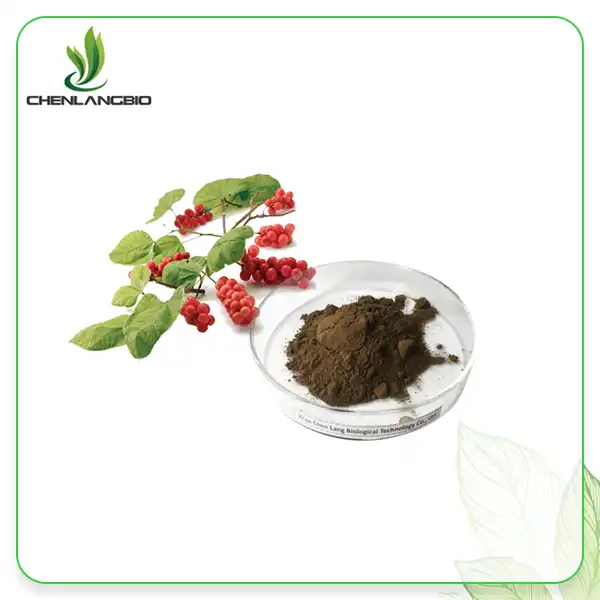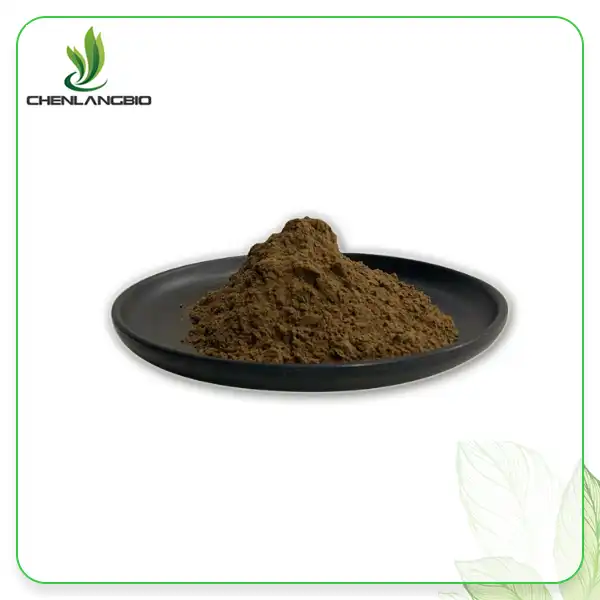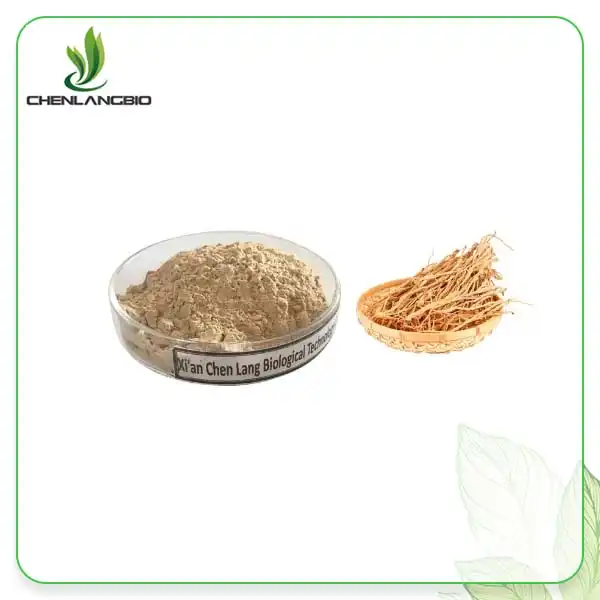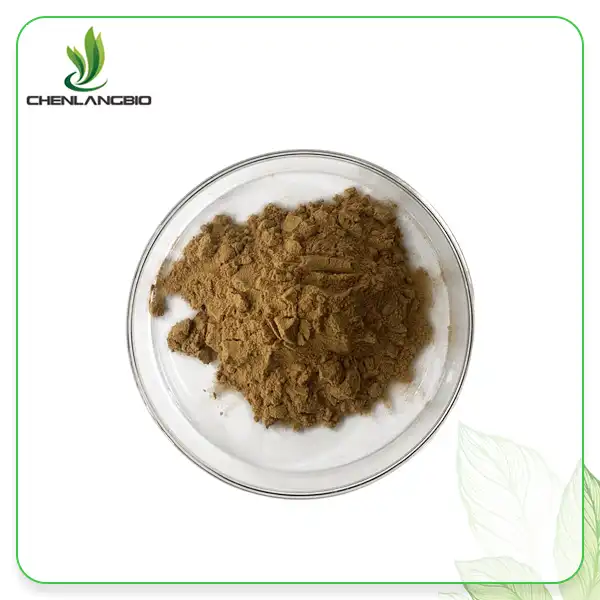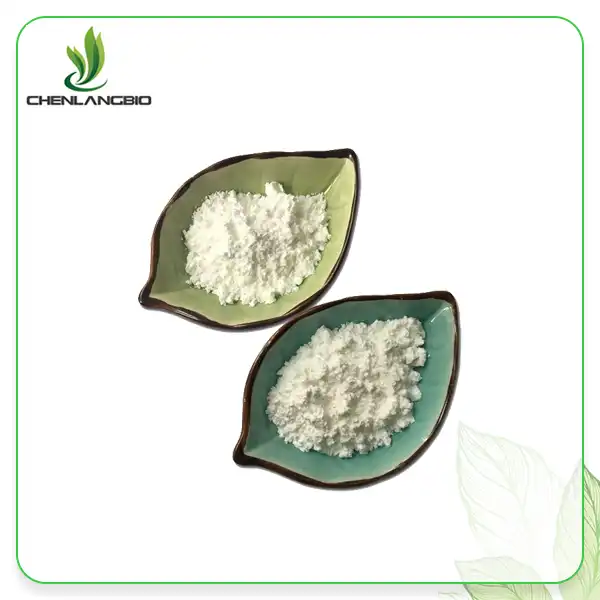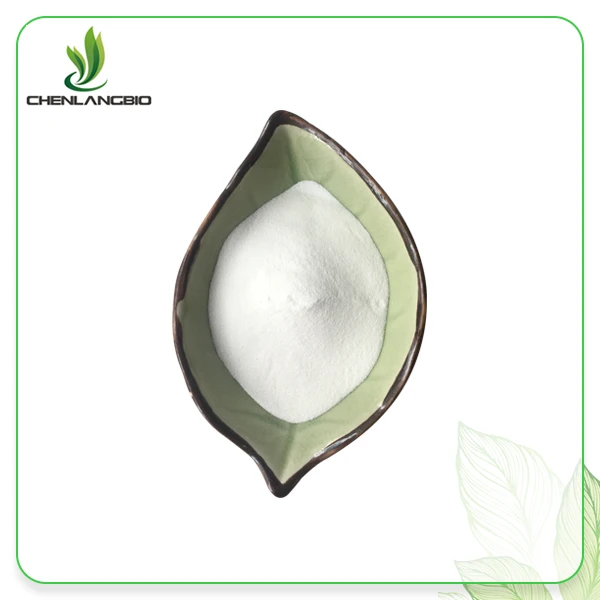Does Honokiol Help With Sleep
2024-06-12 15:43:07
Sleep is essential for overall health and well-being, yet many people struggle with sleep-related issues such as insomnia and poor sleep quality. Honokiol, a compound extracted from the bark of Magnolia officinalis, has gained attention for its potential benefits in promoting better sleep. Known for its calming and sedative effects, honokiol is increasingly used as a natural sleep aid. This article explores whether honokiol can help improve sleep quality, addressing its effectiveness, the mechanisms behind its sleep-promoting properties, and how it should be used for optimal results.
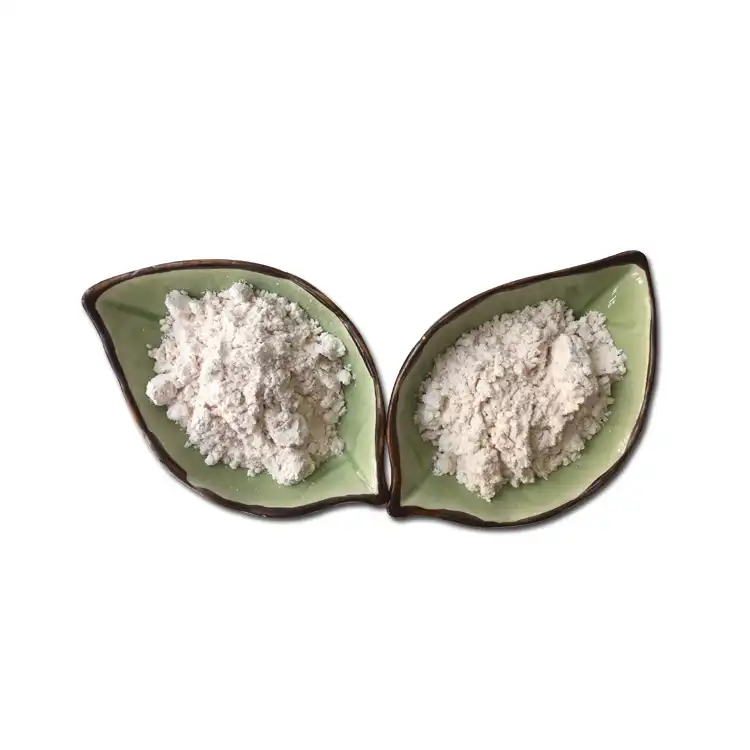
How Does Honokiol Promote Sleep?
Honokiol’s ability to promote sleep is linked to its interaction with various neurotransmitter systems in the brain. It primarily affects the gamma-aminobutyric acid (GABA) system, which plays a crucial role in regulating sleep and relaxation.
What is the Role of GABA in Sleep?
GABA is the primary inhibitory neurotransmitter in the central nervous system. It helps to calm neuronal activity, making it easier to fall asleep and stay asleep. By enhancing GABAergic activity, honokiol can produce sedative and anxiolytic effects, which are beneficial for those struggling with sleep disorders.
Research indicates that honokiol can bind to GABA receptors, mimicking the effects of GABA and promoting relaxation. This mechanism is similar to how some prescription sleep aids work, but honokiol offers a natural alternative with potentially fewer side effects.
What Evidence Supports Honokiol’s Sleep-Promoting Effects?
Several studies have explored honokiol's effects on sleep:
Animal Studies: Research on rodents has shown that honokiol can significantly increase sleep time and reduce sleep latency. These studies highlight honokiol's potential to induce sleep and improve sleep quality.
Human Studies: Although human research is more limited, some studies suggest that honokiol can improve sleep parameters in individuals with insomnia or anxiety-related sleep disturbances. Participants reported better sleep quality, reduced time to fall asleep, and fewer awakenings during the night.
The calming effects of honokiol also contribute to its sleep-promoting properties. By reducing anxiety and stress, honokiol can help create a conducive environment for sleep, making it easier to relax and fall asleep naturally.
Are There Any Side Effects or Risks Associated with Using Honokiol for Sleep?
While honokiol is generally considered safe, understanding potential side effects and risks is essential for informed use, especially when used as a sleep aid.
What Are the Common Side Effects?
Honokiol is usually well-tolerated, but some users might experience mild side effects, particularly at higher doses. Common side effects include:
Drowsiness and Fatigue: Given its sedative properties, honokiol can cause drowsiness, which is beneficial for sleep but may affect daytime alertness if taken in excessive amounts.
Gastrointestinal Issues: Some users report nausea or stomach discomfort, which typically subsides as the body adjusts to the supplement.
Headaches and Dizziness: These are occasional side effects that generally diminish with continued use.
Starting with a lower dose and gradually increasing it can help mitigate these side effects. It’s also advisable to take honokiol at night to avoid daytime drowsiness.
Are There Any Long-Term Risks?
Long-term safety data on honokiol is limited, but existing research suggests that it does not cause significant toxicological effects. However, long-term use requires caution, particularly regarding potential interactions with other medications or supplements.
Drug Interactions: Honokiol can inhibit cytochrome P450 enzymes, affecting the metabolism of various medications. This can alter the effectiveness of drugs such as anticoagulants, statins, and certain anxiety medications.
Tolerance and Dependence: Although honokiol is not known to cause dependence, it’s essential to monitor usage to avoid potential tolerance or diminishing effects over time.
Consulting with a healthcare provider before starting honokiol, especially for long-term use, can help mitigate risks and ensure safe and effective use.
What is the Recommended Dosage of Honokiol for Sleep?
Determining the appropriate dosage of honokiol for sleep involves considering individual factors such as health status, the severity of sleep issues, and overall tolerance.
How Should Honokiol Be Dosed for Optimal Sleep Benefits?
There is no standardized dosage for honokiol, but general guidelines based on research and clinical practice suggest:
Starting Dose: A common starting dose is 200-300 mg per day, taken approximately 30 minutes to an hour before bedtime. This allows time for the compound to take effect and promote relaxation.
Adjusting Dosage: Depending on individual response, the dose can be gradually increased to 500-1000 mg per day. It’s important to start with a lower dose to assess tolerance and minimize potential side effects.
Honokiol is available in various forms, including capsules, powders, and tinctures. Capsules and powders offer precise dosing, while tinctures provide flexibility in adjusting doses.
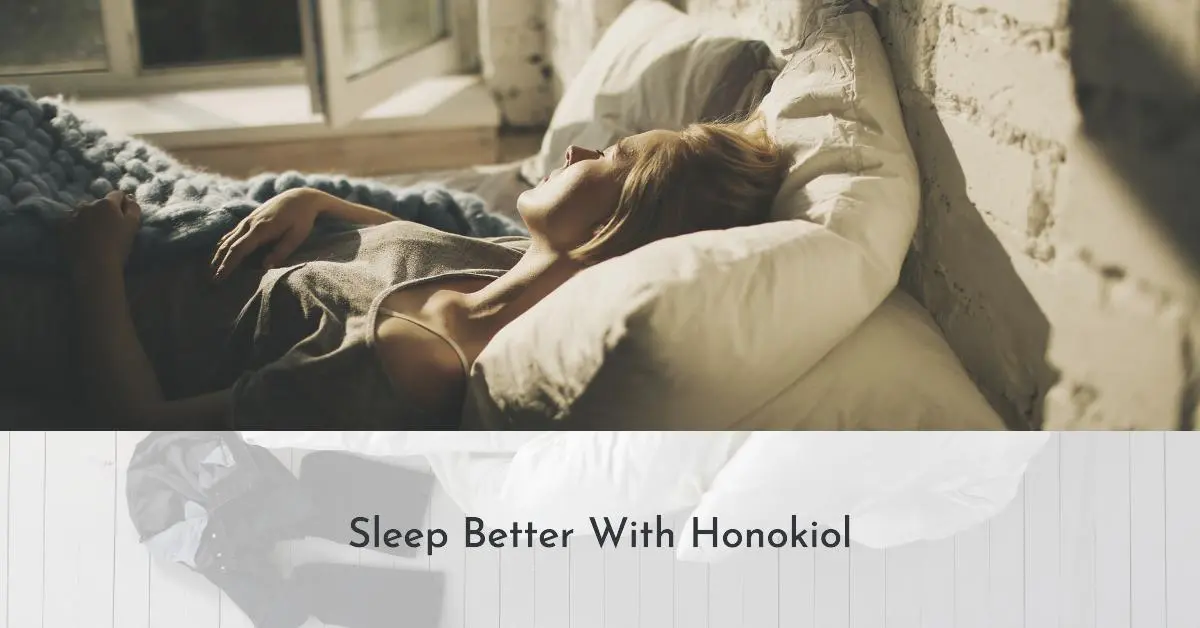
Are There Different Forms of Honokiol Available?
Honokiol supplements come in several forms, each with its advantages:
Capsules: These are convenient for daily use and provide accurate dosing.
Powders: Powders can be mixed with liquids and allow for easy dose adjustments.
Tinctures: Tinctures offer flexibility in dosing and can be mixed with water or other beverages for easier consumption.
Choosing a reputable manufacturer is crucial to ensure product quality and potency. Look for third-party testing and certification to confirm purity and effectiveness.
Conclusion
Honokiol, derived from Magnolia officinalis, shows promise as a natural sleep aid due to its sedative and calming effects. While generally safe, users should start with lower doses and gradually increase them to minimize potential side effects. Consulting with healthcare professionals can help ensure safe and effective use, particularly for long-term use or when combined with other medications. If you want to get more information about this product, you can contact ua at admin@chenlangbio.com
References
Pure Honokiol: A Powerful Tool for Health – ecoNugenics
Magnolia Bark Extract Uses, Benefits & Dosage - Drugs.com
Magnolia Bark Extract benefits, dosage, and side effects - Examine
8 Health Benefits of Magnolia Bark + Dosage, Side Effects - SelfDecode
Magnolia Bark: Benefits, Usage, and Side Effects - Healthline
Honokiol - Wikipedia
Honokiol: A review of its pharmacological potential and therapeutic applications – ScienceDirect
Neuropharmacological potential of honokiol and its derivatives – BMC Complementary Medicine and Therapies
This Hidden Oatmeal Benefit Could Transform Your Heart Health – The Healthy
Avenanthramide supplementation reduces eccentric exercise-induced inflammation – Nutrition Journal
Send Inquiry
Related Industry Knowledge
- What are the Health Benefits of Broccoli Extract Powder?
- Is Dimethylmethoxy Chromanyl Palmitate Effective for Hyperpigmentation
- Are There Any Side Effects of Using Dimethylmethoxy Chromanol
- Why is Green Tea Extract Bad for You
- What is Praziquantel Tablet Used For
- Does Praziquantel Treat Tapeworms
- Does pqq lower blood pressure?
- What is Hydrolyzed Keratin
- Argireline Powder Supplier
- What Are the Benefits of Chaga Mushroom Extract Powder


